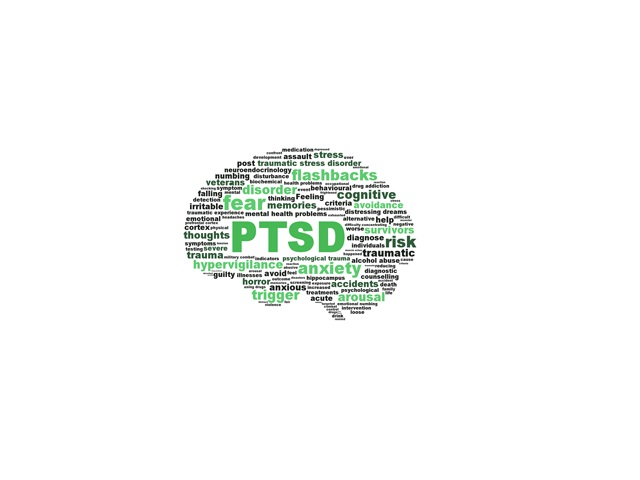Critical Signs You May Have Attention Deficit Hyperactivity Disorder -- Symptoms, Causes, Effects, Treatment and Prevention
Attention Deficit Hyperactivity Disorder (ADHD) is a neurodevelopmental disorder characterized by persistent patterns of inattention, hyperactivity, and impulsivity that significantly impact daily functioning. Here is a brief explanation of ADHD, along with its symptoms, diagnosis, causes, effects, treatment, and prevention:
Symptoms of Attention Deficit Hyperactivity Disorder:
The symptoms of ADHD can be categorized into two main clusters:
Inattention:
- Difficulty sustaining attention and staying focused on tasks or activities.
- Trouble organizing tasks and belongings.
- Frequently losing items necessary for tasks.
- Being easily distracted by external stimuli.
- Forgetfulness and frequently making careless mistakes.
Hyperactivity and Impulsivity:
- Restlessness and excessive fidgeting.
- Difficulty staying seated in situations where remaining seated is expected.
- Talking excessively and difficulty waiting for their turn.
- Impulsivity, such as interrupting others or engaging in risky behaviors.
Diagnosis of Attention Deficit Hyperactivity Disorder:
Diagnosing ADHD involves a comprehensive evaluation by a healthcare professional. Key components of the diagnosis include:
- Meeting the diagnostic criteria outlined in the Diagnostic and Statistical Manual of Mental Disorders (DSM-5).
- Presence of symptoms that persist for at least six months and are present in multiple settings (e.g., home, school, work).
- Ruling out other potential causes for the symptoms, such as medical conditions or substance use.
Causes of Attention Deficit Hyperactivity Disorder:
The exact causes of ADHD are not fully understood, but research suggests a combination of genetic, neurological, and environmental factors:
- Genetic factors: There is evidence of a genetic component in ADHD, with certain genes associated with an increased risk.
- Neurotransmitter imbalances: Differences in the levels or functioning of neurotransmitters like dopamine and norepinephrine may contribute to ADHD.
- Brain structure and function: Variations in brain structure and activity, particularly in regions involved in attention and impulse control, have been observed in individuals with ADHD.
- Environmental factors: Factors such as prenatal exposure to toxins, premature birth, low birth weight, and exposure to lead may contribute to the development of ADHD.
Effects of Attention Deficit Hyperactivity Disorder:
ADHD can have various effects on individuals, including:
- Academic and occupational challenges: Difficulties with focus, organization, and impulsivity can impact academic performance and job functioning.
- Relationship difficulties: Impulsivity, forgetfulness, and inattentiveness can strain relationships with family, friends, and colleagues.
- Mental health comorbidities: Individuals with ADHD may be at higher risk for other mental health conditions, such as anxiety, depression, and substance use disorders.
- Low self-esteem: Struggles in various areas of life can contribute to feelings of low self-worth and frustration.
Treatment of Attention Deficit Hyperactivity Disorder:
The treatment of ADHD typically involves a multimodal approach tailored to the individual's needs:
- Medication: Stimulant and non-stimulant medications, such as methylphenidate and atomoxetine, can help reduce ADHD symptoms.
- Behavioral therapy: Techniques such as cognitive-behavioral therapy (CBT), parent training, and school interventions can teach coping skills and improve self-regulation.
- Education and support: Providing psychoeducation to individuals with ADHD and their families helps them understand the condition and develop strategies for managing symptoms.
Prevention of Attention Deficit Hyperactivity Disorder:
Currently, there are no known methods to prevent ADHD. However, early identification, appropriate interventions, and support can help manage symptoms and minimize the impact on daily functioning.
It is important for individuals experiencing symptoms of ADHD or seeking more information to consult healthcare professionals, such as psychiatrists, psychologists, or pediatricians, for a comprehensive evaluation, accurate diagnosis, and appropriate treatment.
References:
American Psychiatric Association. (2013). Diagnostic and Statistical Manual of Mental Disorders (DSM-5). American Psychiatric Publishing.
National Institute of Mental Health. (2021). Attention-Deficit/Hyperactivity Disorder (ADHD). Retrieved from https://www.nimh.nih.gov/health/topics/attention-deficit-hyperactivity-disorder-adhd/index.shtml
Centers for Disease Control and Prevention. (2021). Attention-Deficit/Hyperactivity Disorder (ADHD). Retrieved from https://www.cdc.gov/ncbddd/adhd/index.html


















